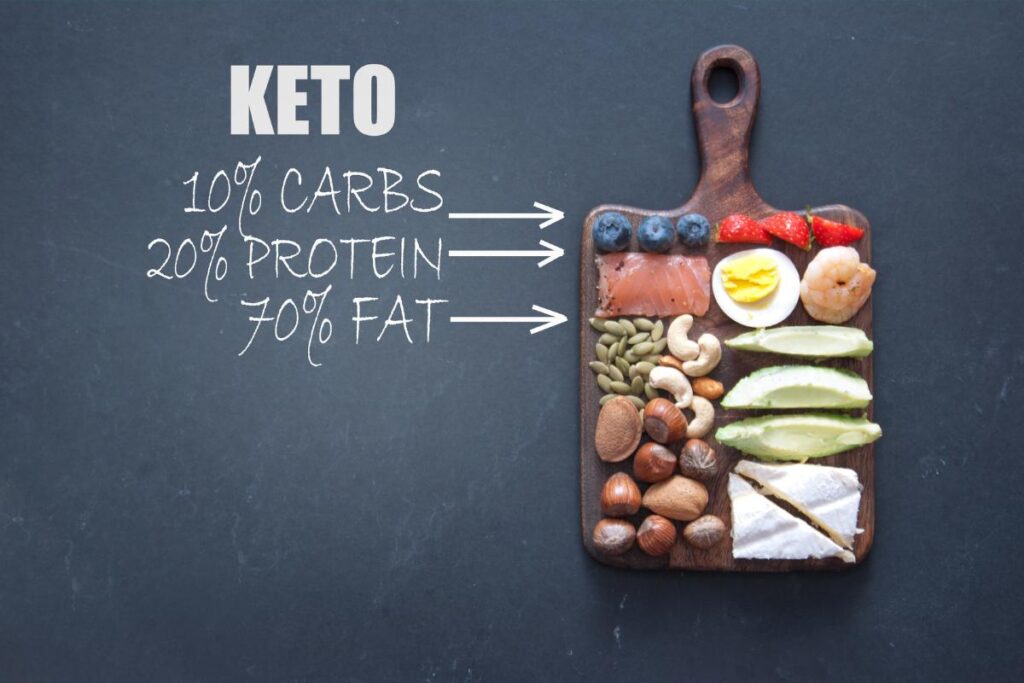Are you interested in fat as a source of energy in keto bodybuilding? The ketogenic diet, emphasizing high-fat intake and low carbohydrates, has revolutionized how we approach nutrition and fitness. Contrary to traditional beliefs, the body can efficiently utilize fat as its primary energy source during workouts, even for intense training sessions.
In this article, we will explore how the body taps into fat stores for energy, the role of ketones in providing fuel, and strategies for adapting training intensity and volume to fit a ketogenic diet in the context of bodybuilding.
How the Body Utilizes Fat as the Primary Energy Source During Workouts
In a state of ketosis, brought about by a well-formulated ketogenic diet, the body undergoes a metabolic shift, relying on fat for energy instead of carbohydrates. As carbohydrates are restricted, insulin levels drop, prompting the liver to produce ketones from fatty acids. These ketones are an alternative fuel source for the brain and muscles, facilitating physical and mental performance.
During workouts, when energy demands increase, the body releases stored fat and breaks it down into free fatty acids, which can be used as fuel by muscle cells. As a result, athletes on a ketogenic diet can effectively tap into their body’s vast fat reserves for sustained energy during moderate and intense training sessions.
Understanding the Role of Ketones in Providing Energy for Intense Training Sessions
Ketones play a pivotal role in providing energy during intense workouts. These water-soluble molecules are readily transported in the bloodstream and can cross the blood-brain barrier to fuel the brain and central nervous system. Additionally, ketones are highly efficient at generating adenosine triphosphate (ATP), the body’s primary energy currency.
Unlike glucose, which requires insulin for uptake into cells, ketones do not depend on insulin, allowing for a steadier and more consistent energy supply throughout workouts. This stable energy release can enhance endurance and reduce the likelihood of sudden energy crashes during training.
Moreover, ketones have been shown to have neuroprotective and anti-inflammatory effects, potentially contributing to improved cognitive function and faster recovery after intense exercise.
Adapting Training Intensity and Volume to Fit a Ketogenic Diet
While the body can efficiently utilize fat for energy during workouts on a ketogenic diet, some training intensity and volume adjustments may be necessary for optimal performance and recovery.
1. Gradual Adaptation: As the body transitions from using carbohydrates to fats as its primary fuel source, athletes may experience a temporary decrease in performance. It is essential to allow time for adaptation and not push too hard during the initial stages of the diet.
2. Prioritize Recovery: Recovery becomes paramount in a ketogenic bodybuilding regimen. Sufficient sleep, proper hydration, and targeted nutrition will aid in muscle repair and glycogen replenishment.
3. Targeted Carbohydrates: For more demanding workouts or high-intensity training, incorporating targeted carbohydrates around the training session may provide an additional energy source without compromising ketosis. These carbohydrates can come from sources like fruit or glucose-based supplements.
4. Listen to Your Body: How your body responds to the training intensity and volume on a ketogenic diet. Adjust your workouts based on your energy levels, performance, and recovery.
5. Modify Cardiovascular Training: While the body efficiently uses fat for steady-state cardio exercises like walking, jogging, or cycling, high-intensity interval training (HIIT) may require some modifications. Short bursts of intense exercise may benefit from incorporating targeted carbohydrates or adjusting the timing of carbohydrate intake.
Conclusion
The ketogenic diet has opened up new possibilities for athletes and bodybuilders, proving that fat can be a highly effective and sustainable energy source during workouts. Ketones, produced during ketosis, provide a stable and efficient energy supply for both the brain and muscles, enhancing performance and recovery. As with any dietary approach, adapting training intensity and volume is crucial to fit a ketogenic lifestyle.
By allowing for gradual adaptation, prioritizing recovery, and making targeted adjustments to carbohydrate intake, athletes can unleash the power of fat as a source of energy and achieve remarkable results in keto bodybuilding.
It is essential to remember that individual responses may vary, so consulting with a healthcare professional or nutritionist can provide personalized guidance to optimize training and performance while following a ketogenic diet. With the right approach and dedication, fat as a source of energy can unlock new levels of strength, endurance, and overall well-being.
If you love bodybuilding, share this article on Facebook or Twitter so that others can learn more about building muscle.




